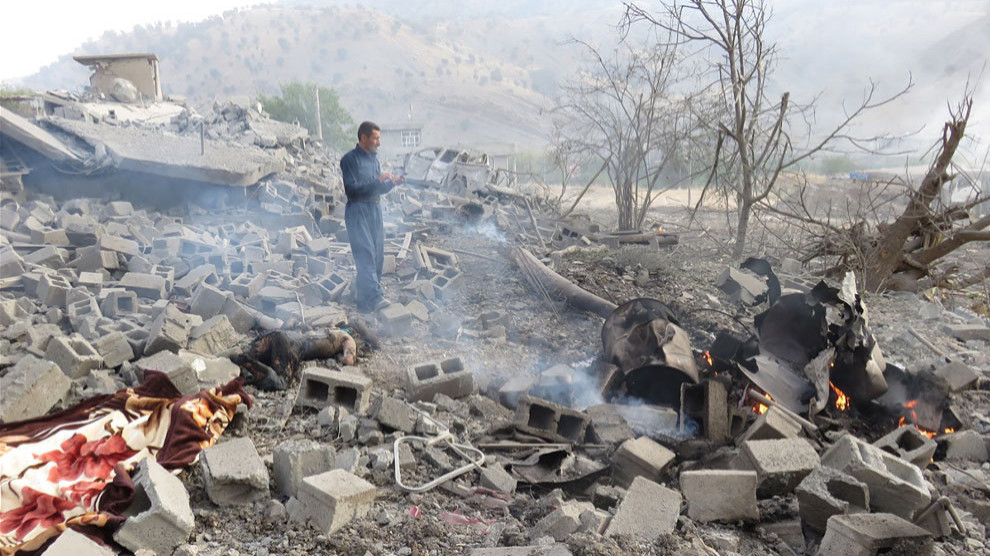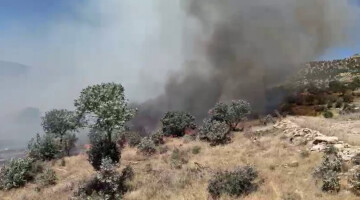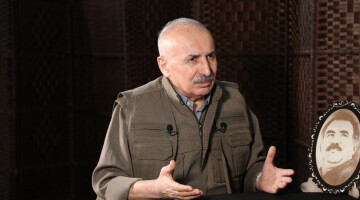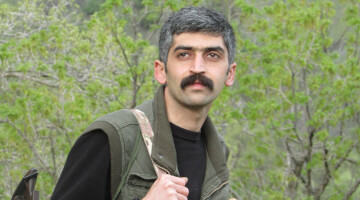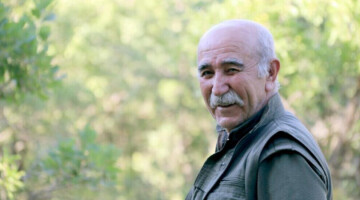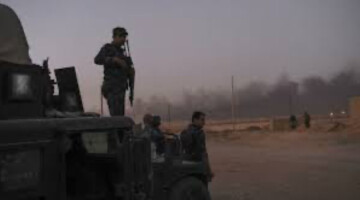The village of Zergelê is located in the valley of the Qandil Mountains in Southern Kurdistan and is divided by a creek and the main road. In the early morning of August 1, 2015, the village witnessed a massacre of Turkey when F-16 fighter jets dropped nine bombs in three waves of attacks and destroyed all six houses of the village. Eight inhabitants were killed in the bombing, 15 others were injured, some of them critically, including children.
An investigation report by the Peoples’ Democratic Party (HDP), which sent a delegation to Zergele only a few hours after the massacre, stated:
"According to the surviving villagers, the area was extensively surveyed by unmanned aircraft one or two days before the air raids; we were told that the first air raid on August 1, 2015 began at about 4 a.m. and the village was bombed at least three times.
The first attack: at about 4 o'clock in the morning, aircraft could be heard, followed by an explosion. The house hit by the bombing was razed to the ground and 70-year-old Ayşe Ahmed Mustafa was killed in the attack.
The second attack: While the villagers tried to rescue Ayşe Ahmed Mustafa, who was buried under the rubble of her house, the second attack occurred at around 4.50 am. According to eyewitnesses, four different explosions occurred at short intervals in the course of this attack, all caused by rocket launches from the jets. This second attack killed civilians Hybet Resul Muhammed Emin (60), Karox Muhammed Emin Hidir, Abdulkadir Ebubekir Ali and Necip Abdullah, who were trying to rescue Ayşe Ahmed Mustafa from the rubble at the time of the attack.
The third attack: While the villagers tried to rescue the injured people from the rubble after the first two attacks, the third attack occurred at around 4:10 am, when four missiles were launched.
The Turkish government justified the massacre of the eight civilians from Zergele by claiming that the attack was aimed at a guerrilla camp where high-ranking PKK officials had been staying - this has been the standard justification of the Turkish authorities for war crimes against the Kurdish population for decades. But only a few days before the massacre in Zergele, President Erdoğan had announced the end of the peace process of the Turkish government and the PKK. "Politicians with connections to terrorist groups should lose their immunity and be prosecuted. Anyone who supports terrorists must pay the price," Erdoğan said at the time, targeting members of the HDP.
The grassroots-democratic HDP had won over thirteen percent of the votes in the parliamentary elections, thus preventing Erdoğan’s AKP from achieving an absolute majority. When then in August self-government was proclaimed in a number of towns and cities in Northern Kurdistan, which represented a democratic counter-draft to the totalitarian "presidential system" proposed by the AKP, Erdoğan once again opted for total war against the Kurdish people. In September 2015, first curfews were imposed on neighborhoods and entire towns - followed by a military siege lasting for months. According to official figures, 1464 people were killed, but the number of unreported cases is likely to be much higher.
Neither the crimes committed by Turkey during the siege of Kurdish cities, nor the massacre of Zergele or other mass murders committed by Turkish security forces against Kurds have been avenged. In Turkish massacres and war crimes, the reaction of the international community is usually similar to Nikko's three monkeys: "See nothing, hear nothing and say nothing".

